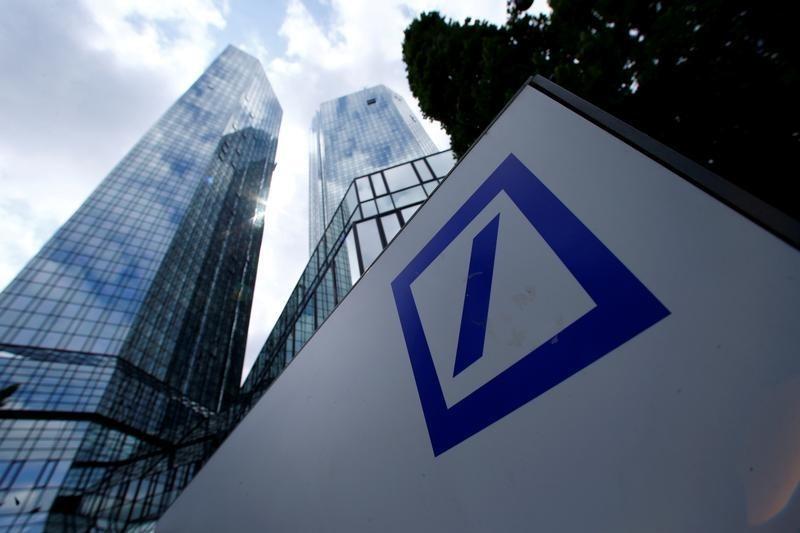Deutsche Bank calls for reform of global financial messaging system SWIFT
FRANKFURT (Reuters) – Deutsche Bank (DBKGn.DE) is calling for a reform of SWIFT, the global financial messaging system which has faced criticism since February’s $81 million heist at Bangladesh Bank.

Germany’s flagship lender – which the International Monetary Fund has branded as the world’s systemically most risky bank for its numerous links to other lenders – is one of the biggest users of SWIFT. It is one of the first large banks to publicly urge changes.
SWIFT is only as strong as its weakest member, Deutsche Bank’s Chief Information Security Officer Hinrich Voelcker said on Wednesday, adding the bank was in discussions with SWIFT about the consequences of the Bangladesh heist.
“If trust in this system breaks down we all have a problem,” he said, without saying which specific reforms he believes are needed.
SWIFT is a member-owned cooperative, dominated by large Western banks, including lenders such as Citi (C.N), JP Morgan (JPM.N) and BNP Paribas (BNPP.PA), which built the network decades ago.
It now connects more than 10,000 different financial firms and industry experts have said all of its users should have to meet a minimum security standard to continue accessing it.
Since the 1990s, many smaller banks in emerging markets have joined SWIFT, which stands for Society of Worldwide Interbank Financial Telecommunication.
Current and former board members of SWIFT have told Reuters that for years the organization suspected there were weaknesses in the way smaller banks used its messaging terminals.
In the Bangladesh heist, hackers broke into a computer interface called Alliance Access, a piece of software sold by SWIFT for accessing its central network. It is still unclear exactly how the thieves gained entry.
Bank Bangladesh, the country’s central bank, has alleged a botched upgrade of its system left vulnerabilities in it. SWIFT has rejected any responsibility for the way Bangladesh Bank upgraded its systems.
Since the Bangladesh incident many banks have added security features, Deutsche Bank’s Voelcker said, adding rapid alert systems helped banks exchange information on hack attempts and patterns.

